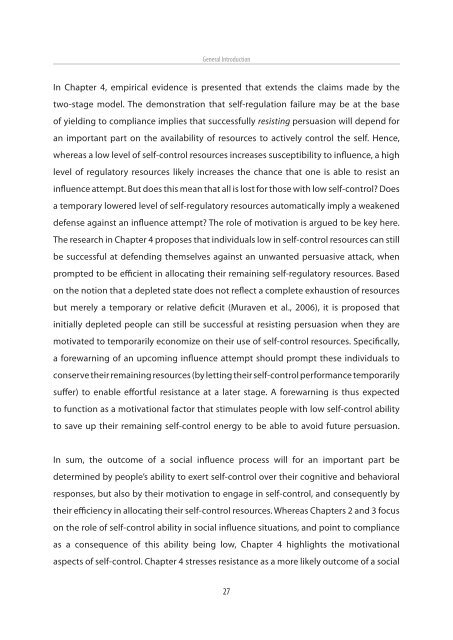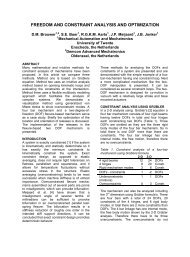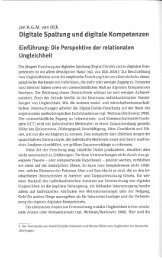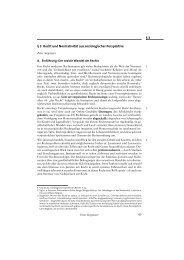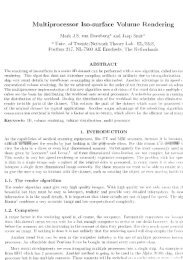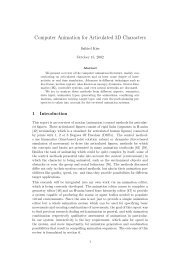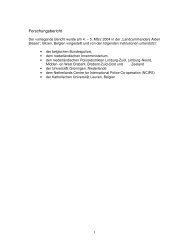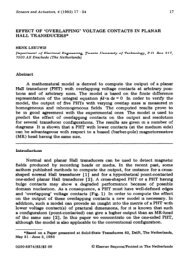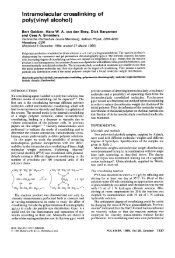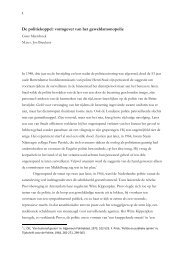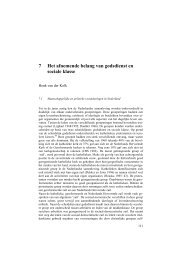Chapter 1 - Universiteit Twente
Chapter 1 - Universiteit Twente
Chapter 1 - Universiteit Twente
You also want an ePaper? Increase the reach of your titles
YUMPU automatically turns print PDFs into web optimized ePapers that Google loves.
General Introduction<br />
In <strong>Chapter</strong> 4, empirical evidence is presented that extends the claims made by the<br />
two-stage model. The demonstration that self-regulation failure may be at the base<br />
of yielding to compliance implies that successfully resisting persuasion will depend for<br />
an important part on the availability of resources to actively control the self. Hence,<br />
whereas a low level of self-control resources increases susceptibility to influence, a high<br />
level of regulatory resources likely increases the chance that one is able to resist an<br />
influence attempt. But does this mean that all is lost for those with low self-control? Does<br />
a temporary lowered level of self-regulatory resources automatically imply a weakened<br />
defense against an influence attempt? The role of motivation is argued to be key here.<br />
The research in <strong>Chapter</strong> 4 proposes that individuals low in self-control resources can still<br />
be successful at defending themselves against an unwanted persuasive attack, when<br />
prompted to be efficient in allocating their remaining self-regulatory resources. Based<br />
on the notion that a depleted state does not reflect a complete exhaustion of resources<br />
but merely a temporary or relative deficit (Muraven et al., 2006), it is proposed that<br />
initially depleted people can still be successful at resisting persuasion when they are<br />
motivated to temporarily economize on their use of self-control resources. Specifically,<br />
a forewarning of an upcoming influence attempt should prompt these individuals to<br />
conserve their remaining resources (by letting their self-control performance temporarily<br />
suffer) to enable effortful resistance at a later stage. A forewarning is thus expected<br />
to function as a motivational factor that stimulates people with low self-control ability<br />
to save up their remaining self-control energy to be able to avoid future persuasion.<br />
In sum, the outcome of a social influence process will for an important part be<br />
determined by people’s ability to exert self-control over their cognitive and behavioral<br />
responses, but also by their motivation to engage in self-control, and consequently by<br />
their efficiency in allocating their self-control resources. Whereas <strong>Chapter</strong>s 2 and 3 focus<br />
on the role of self-control ability in social influence situations, and point to compliance<br />
as a consequence of this ability being low, <strong>Chapter</strong> 4 highlights the motivational<br />
aspects of self-control. <strong>Chapter</strong> 4 stresses resistance as a more likely outcome of a social<br />
27


